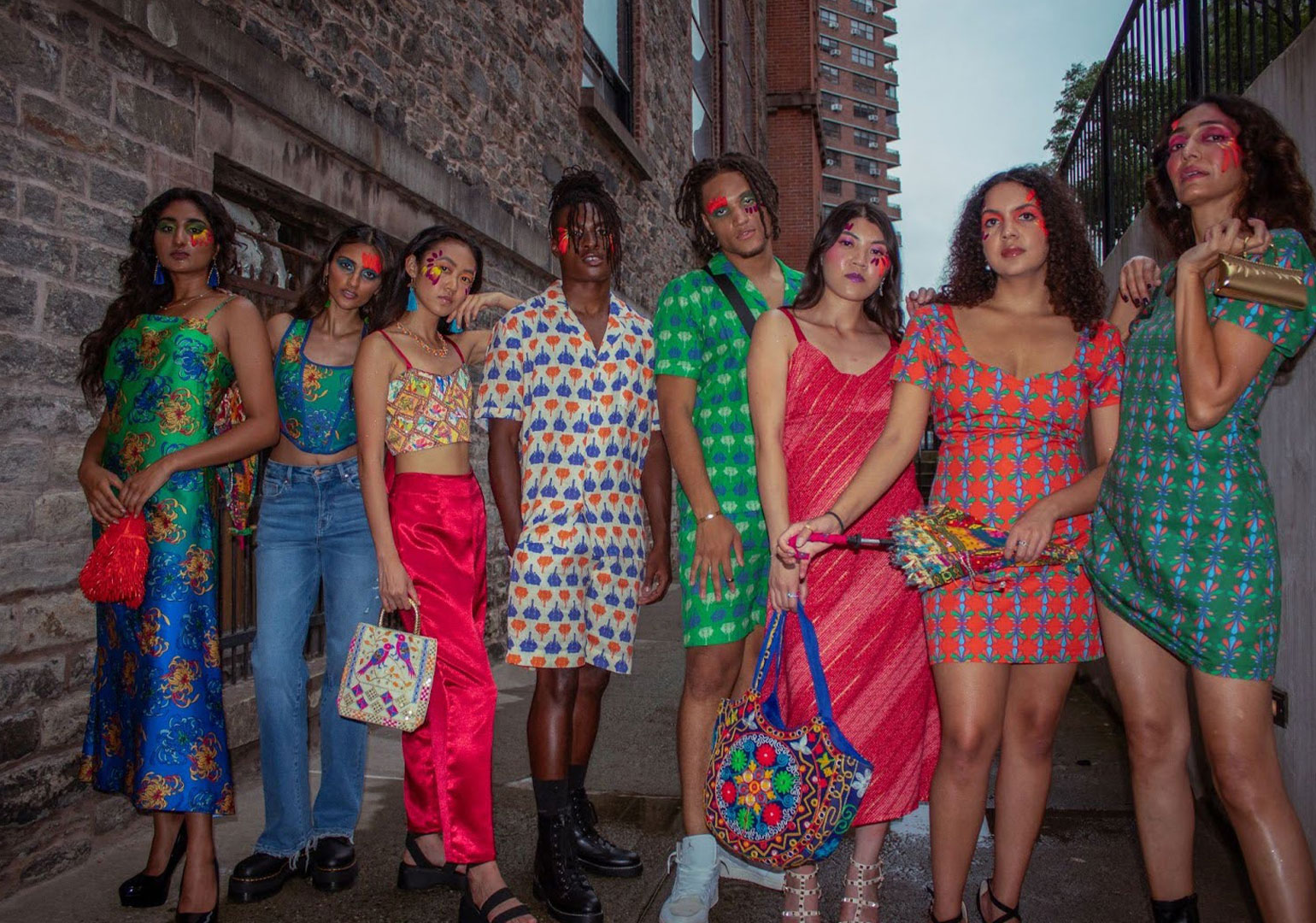Author: Rose McFarlane
Photo courtesy of Sukalp Bhatija
The fashion world is increasingly gearing toward sustainability, heritage, and innovation. Threading traditional South Asian craftsmanship and contemporary luxury fashion is Sukalp Bhatija, the creative force behind Sukushine. She is determined to elevate South Asian textiles to the status of global luxury by redefining what it means to be at the crossroads of tradition and modernity.
Going against fleeting trends and fast fashion, Sukalp Bhatija’s creations reflect the timeless appeal of slow fashion—a movement that values craftsmanship, sustainability, and ethics. As the fashion industry embraces eco-conscious practices and technology, her creations show how tradition and innovation can coalesce to create something unique.
Tradition Meets Modernity
In 2016, Sukalp Bhatija launched Sukushine, a slow fashion label celebrating the intricate art of South Asian textiles. Inspired by the handmade techniques and motifs passed down through generations in her native India, Bhatija’s designs are more than just clothing—they are cultural narratives.
“Sukushine is a way for me to bridge the gap between my two worlds, India and the US,” she explains. “It’s about preserving the craft of traditional textiles, but also about modernizing them for today’s global audience.”
Her connection to South Asian heritage is a foundation for her design philosophy. From her New York City studio, she collaborates exclusively with women-led small-batch manufacturers in India, ensuring that traditional practices—like printing and sewing—remain integral to her collections. “It’s important to me that our business practices empower women artisans and create a space for them to shine,” she adds.
Sukushine’s collections range from garments and accessories to home interiors, all bearing the distinctive blend of old and new that defines the brand. By combining traditional patterns with contemporary silhouettes, she transforms South Asia’s vibrant textiles into wearable art.
A Philosophy in Practice
Fast fashion is widely criticized for its environmental impact, which makes Sukalp Bhatija’s slow fashion approach a refreshing alternative. Her mission goes beyond aesthetics—it’s about ethics and sustainability. Sukushine uses eco-friendly fabrics, ethical production methods, and pays its artisans livable wages, aiming to minimize its environmental footprint while uplifting communities.
“Our mission is to be an ethical and sustainable brand,” she notes. “We value the slow, handmade craft and the cultural narratives within South Asia. Each piece is carefully crafted to respect the environment and the people who create it.”
Sukalp acknowledges the challenges of representing Indian culture in the global fashion market. “Some audiences feel our prints are ‘too Indian’ or ‘too colorful.’ But Indian culture, by definition, is maximalist and vibrant,” she explains. Despite this pushback, she remains steadfast in her vision: to celebrate the complexity and richness of South Asian design.
Showcasing the Vision
In 2023, Sukushine’s Rangeen Collection earned critical acclaim at New York Fashion Week for its bold reinterpretation of traditional textiles. The brand was also featured at prominent events like Hudson Yards Spring Fling and The Grand Bazaar, attracting global audiences seeking meaning and sustainability in their fashion choices.
“We’re offering something beautiful and meaningful,” she emphasizes. “It’s about wearing a piece of history and culture.”
From Delhi to New York
Sukalp’s journey is deeply personal. As an immigrant moving to the United States at 11, she faced a profound culture shock and found solace in the colors and patterns of Indian textiles. This connection eventually led her to study textile design at the Maryland Institute College of Art, followed by a master’s in design strategy and management at Parsons School of Design.
Her career began with internships at companies like John Rosselli & Assoc., where she honed her understanding of luxury textiles. A pivotal moment came with her collaboration on a design sprint for Samsung Electronics, where she explored integrating technology into fashion. This breadth of experience laid the foundation for Sukushine.
In 2020, Sukalp co-founded PhygiLab, a startup blending ultra-luxury fashion with digital innovations like Web 3.0 and blockchain. “It was an exciting time,” she recalls. “We explored how physical and digital worlds could merge to create a more immersive shopping experience.”
A Vision for the Future
Looking ahead, Sukalp envisions Sukushine expanding into designing textiles and prints for larger fashion houses while maintaining its commitment to artisan-led production. “I want to highlight that handcrafted, ethically produced work has immense value, especially in a world increasingly focused on speed and simplicity,” she says.
For Sukalp, the mission isn’t just about fashion—it’s about creating a space where South Asian artistry is celebrated and preserved. “It’s about more than just creating beautiful clothes,” she reflects. “It’s about creating something that lasts and tells a story.”
S















